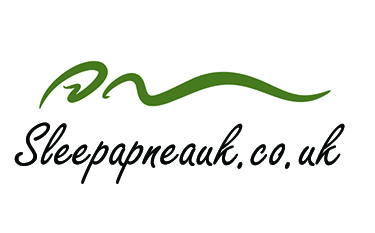About Me
I have been living for 2 years with balance, memory and concentration disorders. I have pain in my limbs, a headache and I am always exhausted. go to work and in the evening I become so I’m exhausted … I was just diagnosed with severe sleep apnea and finally a doctor understood what I was going through. Then I decided that this has to stop and I had to something about it. My name Is Joanne and welcome to my blog where I share my experience with sleep apnea.
Sleep apnea is a serious disorder that should not be taken lightly. If you think you are suffering from it, you should consult a specialist doctor. He will carry out an in-depth examination including a questionnaire, blood tests, observation of the respiratory tract and, very often, a “polysomnography. It is actually a night in a specialized laboratory to analyze the rhythms, frequency and duration of respiratory arrest.

Complications of Sleep Apnea
Daily fatigue. The repeated awakenings associated with a non restorative sleep induce drowsiness and tiredness daily.
Difficulty concentrating. Because of these night awakenings, you are less efficient, you fall asleep at work or even while driving.
Irritability or depression. In children and adolescents, this can lead to poor school results or behavioral problems.
High blood pressure or heart problems. The drop in oxygen levels in the blood that occurs during sleep apnea increases blood pressure and puts more strain on the cardiovascular system than usual. This can increase the risk of recurrent heart attack, stroke, and abnormal heartbeat.
Type 2 diabetes. Sleep apnea increases the risk of developing insulin resistance and, ultimately, type 2 diabetes.
Metabolic syndrome. This disorder, which includes high blood pressure, abnormal cholesterol levels, high blood sugar and increased waist circumference, is favored by apnea and linked to an increased risk of heart disease.
When you get to this point, consulting becomes essential. Here is the sequence to follow to obtain the best diagnosis:
Make an appointment with a family doctor;
Take a screening test at the pulmonologist. The latter will, if applicable, make a diagnosis of sleep apnea;
Get advice from a Medicus respiratory therapist on the type of sleep apnea product to take (if you got a prescription for a device).
Among the devices available on the market are:
Continuous positive pressure devices (CPAP): these devices keep the airways clear during sleep;
Masks and other accessories: they are adapted to everyone’s needs and preferences – this is why there are 3 main families of masks:
- Nasal mask: this is a mask which penetrates directly into the nostril (examples: ResMed – Air Fit P10, Air Fit P10 for women),
- Nasal mask: this mask envelops the nose without obstructing the nostrils (example: Fisher and Paykel – Eson 2),
- Naso-oral mask: this is a mask that completely covers the nose and mouth (example: ResMed – Air Fit F20).
Complications of Sleep Apnea
Daily fatigue. The repeated awakenings associated with a non restorative sleep induce drowsiness and tiredness daily.
Difficulty concentrating. Because of these night awakenings, you are less efficient, you fall asleep at work or even while driving.
Irritability or depression. In children and adolescents, this can lead to poor school results or behavioral problems.
High blood pressure or heart problems. The drop in oxygen levels in the blood that occurs during sleep apnea increases blood pressure and puts more strain on the cardiovascular system than usual. This can increase the risk of recurrent heart attack, stroke, and abnormal heartbeat.
Type 2 diabetes. Sleep apnea increases the risk of developing insulin resistance and, ultimately, type 2 diabetes.
Metabolic syndrome. This disorder, which includes high blood pressure, abnormal cholesterol levels, high blood sugar and increased waist circumference, is favored by apnea and linked to an increased risk of heart disease.
When you get to this point, consulting becomes essential. Here is the sequence to follow to obtain the best diagnosis:
Make an appointment with a family doctor;
Take a screening test at the pulmonologist. The latter will, if applicable, make a diagnosis of sleep apnea;
Get advice from a Medicus respiratory therapist on the type of sleep apnea product to take (if you got a prescription for a device).
Among the devices available on the market are:
Continuous positive pressure devices (CPAP): these devices keep the airways clear during sleep;
Masks and other accessories: they are adapted to everyone’s needs and preferences – this is why there are 3 main families of masks:
- Nasal mask: this is a mask which penetrates directly into the nostril (examples: ResMed – Air Fit P10, Air Fit P10 for women),
- Nasal mask: this mask envelops the nose without obstructing the nostrils (example: Fisher and Paykel – Eson 2),
- Naso-oral mask: this is a mask that completely covers the nose and mouth (example: ResMed – Air Fit F20).
